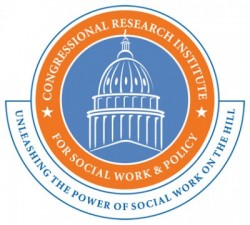Chicago Congressman Danny K. Davis (D-IL-7) is the latest to introduce legislation to curb the use of monetary bail as a condition for pre-trial release. His bill—H.R. 4833, the Bail Fairness Act of 2018—would require states to provide non-monetary release for all arrestees charged with a non-violent misdemeanor with no prior convictions or they would forfeit a portion of their federal funding for criminal justice activities.
Earlier, California Democratic Senator Kamala Harris teamed with Kentucky Republican Senator Rand Paul to introduce S.1593, the Pretrial Integrity and Safety Act of 2017, that would provide grants to states to transform their monetary bail systems. An identical companion bill, H.R. 4019, was introduced in the House by California Democrat Rep. Ted Lieu (CA-33). Davis’s bill has eight co-sponsors—all Democrats. Harris and Paul’s bill has no co-sponsors.
ew York City Comptroller Scott Stringer announced last week that he would seek to end monetary bail for low-level offenders. A poll released in November by the ACLU’s Campaign for Smart Justice found an overwhelming number of Americans support criminal justice reform. The poll of 1003 conservatives, progressives, and independents found 91 percent believe the system needs repair, 71 percent say the prison population needs to be reduced, and 71 percent said incarceration is often counterproductive to public safety—including 65 percent of Trump voters. Exposing so many to the criminogenic effects of incarceration is not the best policy.
 The collateral consequences of the overuse of incarceration in the United States over the past several decades have wreaked havoc on the lives of millions of Americans—particularly those who are poor and live in communities of color. No hyperbole—much of the damage is immoral. Though some consequences are unintended, the misuse of monetary bail has been designed to enrich bail profiteers, including local bonds and insurance companies who underwrite the $14 billion in bail bonds issued each year in the United States. Thousands of pretrial detainees languish in local jails—some for as long as a year—because they lack the resources to pay bail. It is estimated more than 60 percent of people in jail are not convicted—they are awaiting trial but cannot raise the needed bail for release.
The collateral consequences of the overuse of incarceration in the United States over the past several decades have wreaked havoc on the lives of millions of Americans—particularly those who are poor and live in communities of color. No hyperbole—much of the damage is immoral. Though some consequences are unintended, the misuse of monetary bail has been designed to enrich bail profiteers, including local bonds and insurance companies who underwrite the $14 billion in bail bonds issued each year in the United States. Thousands of pretrial detainees languish in local jails—some for as long as a year—because they lack the resources to pay bail. It is estimated more than 60 percent of people in jail are not convicted—they are awaiting trial but cannot raise the needed bail for release.
The horror stories are many. Innocent people have lost their jobs because they were in lockup for weeks before they could get a court date. Families and relatives of inmates have lost their homes and their savings as collateral for bail bonds. It is common for innocent people to enter a plea bargain to get out of detention—particularly if they are sentenced to time served. The bail and bond system hits the poor hardest. People who are arrested and put in jail have significantly lower incomes than their non-incarcerated counterparts. The affluent arrestee can usually pay bail and be released. Not so for poor people. Once again, the land of the free is not so free if you do not have money. It costs taxpayers $9 billion yearly to house indigent detainees.
So, what can social workers do? As co-leaders of the Policy Working Group for the 12 Grand Challenges for Social Work’s Smart Decarceration network, NASW’s Mel Wilson and I have the green light from the network’s co-leads, Matt Epperson and Carrie Pettus-Davis, to make bail reform one of our policy priorities. We are looking at a possible fall briefing on the Hill to generate attention and support. Social workers all over the country can play a role by advocating for their congressional representatives to co-sign on these bills. NASW chapters can mobilize communities to support the pending legislation. What a relief it would be for so many of our constituents.
Opportunities for significant policy change are often fleeting and if one does not seize the moment the window closes quickly. It was a long, tough fight for Congressman Davis to get the Second Chance Act passed and signed into law by President George W. Bush in 2008. There was bipartisan talk in Congress about criminal justice reform throughout President Barack Obama’s eight years in the White House. There is strong bipartisan support for the Grassley-Durbin bill to reduce mandatory sentences for low-level drug offenders. The people must push the politicians to effect change.
The post Social Workers Could Get Behind Bail Reform appeared first on Congressional Research Institute for Social Work and Policy.
Written By Charles E. Lewis Jr., Ph.D
Social Workers Could Get Behind Bail Reform was originally published @ Charles Lewis – Congressional Research Institute for Social Work and Policy and has been syndicated with permission.
Sources:
Our authors want to hear from you! Click to leave a comment
Related Posts







